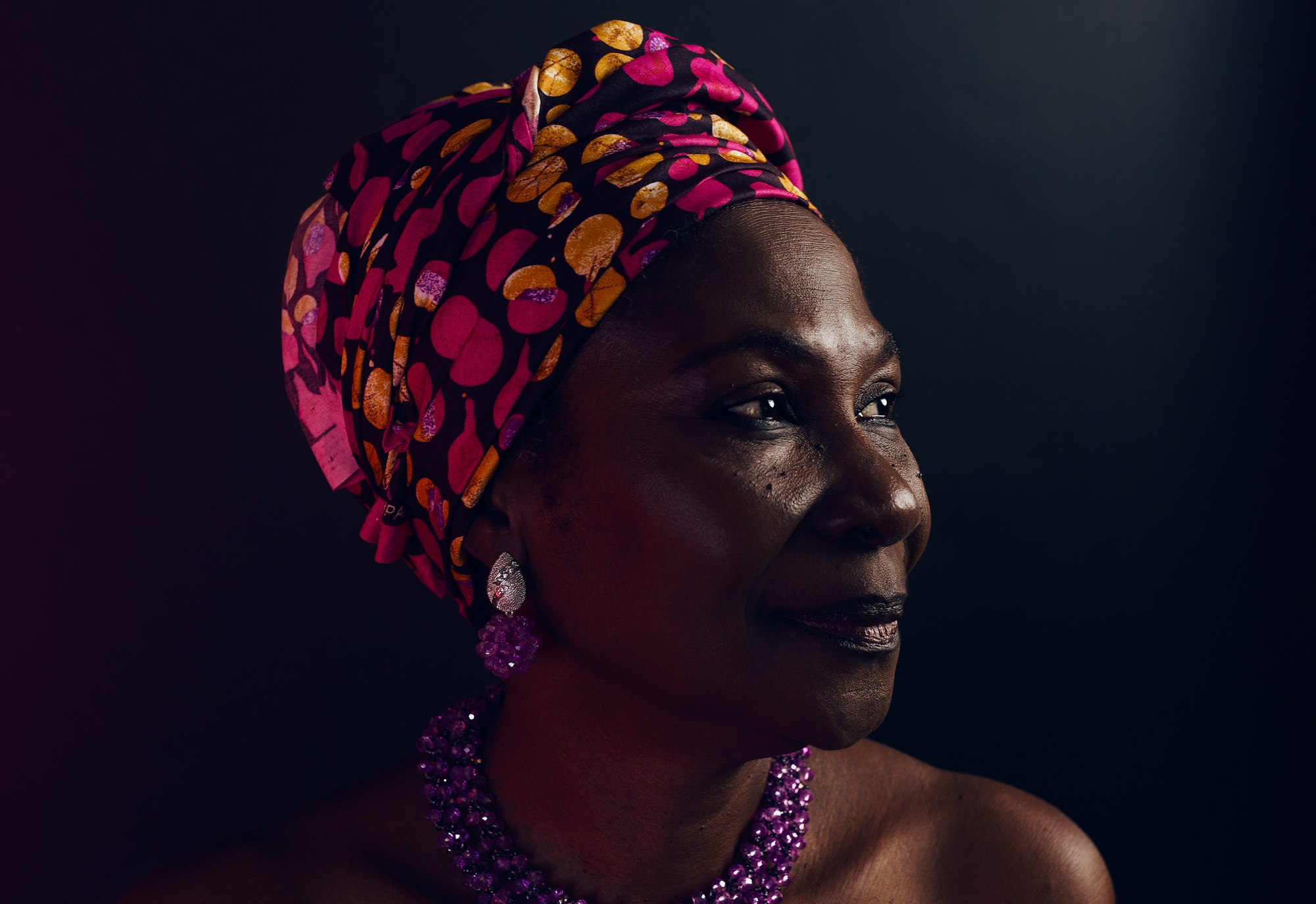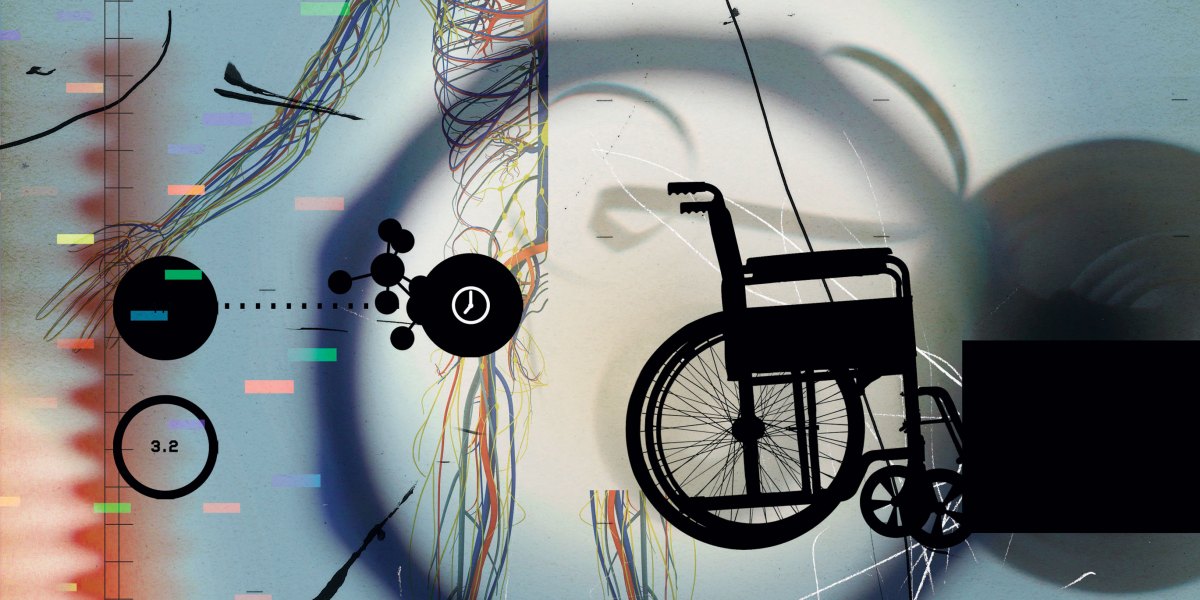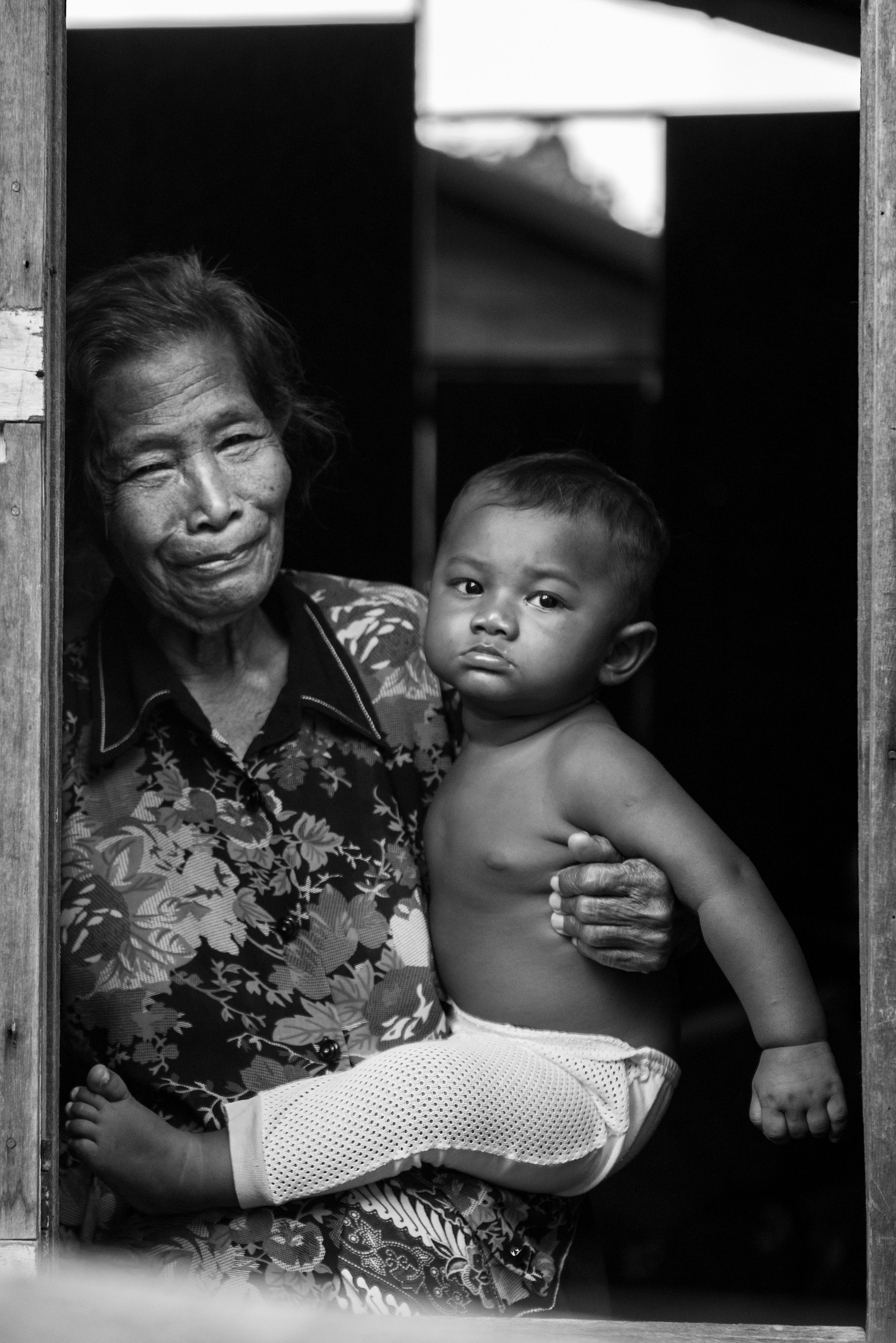
Let's change the conversation about old age. It starts with changing the language around it.
Dear Reader: this is the first installment in response to a WalkaboutSaga.com poll asking my Patreon supporters to rate a few story topics by preference. This topic got the most votes, and therefore is my first priority. Thank you to my supporters for their feedback.
There is a great deal of money in the search for the Fountain of Youth, which is one reason why today's uber-billionaires are funding research which will help (them) live forever. Not the rest of us, don't be fooled. Those folks have no interest in the longevity of the hoi polloi, other than we consume their overpriced goods and fuel their yachts and space races with our Amazon purchases. This isn't about the greater good at all. This is about greed.
In case you missed it the first time, here The Guardian points out that this latest "war on aging," as if we needed another war, has been fueled by those feeling the impacts of time, and have foolishly (to my mind, at least) chosen to attack the aging process rather than invest their billions in buying large tracts of the Amazon to protect it for future generations. The way we spend our money speaks to our values, or lack thereof.
But I digress. The uber rich want to live forever, and there is a spreading belief that they can prevent their impending doom simply by throwing money at the problem.
Love to see how that all works out.
But then, there is also this belief, also potentially worth billions and trillions, spread by folks like David Sinclair that aging is a disease and should be treated like one. Ever since Mary Shelley's Frankenstein monster and likely well before that, humans have wanted immortality, apparently at any cost, including to each other and the earth we inhabit.
The real cost to those billionaires and the billions of folks who really would like to stick around a lot longer is lost time in la-la land, but that's just me, and here's why.
To that discussion let's look at what's being said. First:

From the article:
Sinclair says:
“Work to develop medicines that could potentially prevent and treat most major diseases is going far slower than it should be because we don’t recognize aging as a medical problem,” he says. “If aging were a treatable condition, then the money would flow into research, innovation, and drug development. Right now, what pharmaceutical or biotech company could go after aging as a condition if it doesn’t exist?” It should, he says, be the “biggest market of all.”
You will forgive me for pointing out that this is pure profit motive. I have no interest in anything else the man says, once I read that last line. For it's not about living well, learning to take care of the bodies we've been given, and being more responsible about the planet. This is about the money and profit to be gained by selling anti-aging. Even if we could do it, consider what would happen as over-population takes on a whole new dimension. But more on that later.
He has naysayers:
It “turns a scientific discussion into a commercial or a political discussion,” says Eline Slagboom, a molecular epidemiologist who works on aging at Leiden University Medical Center in the Netherlands. Viewing age as just a treatable disease shifts the emphasis away from healthy living, she says. Instead, she argues, policymakers and medical professionals need to do more to prevent chronic diseases of old age by encouraging people to adopt healthier lifestyles while they are still young or middle-aged. Otherwise, the message is “that we can’t do anything with anybody [as they age] until they reach a threshold at the point where they get sick or age rapidly, and then we give them medication.” (author bolded)
You will forgive my pointing out the obvious: there is no profit in prevention. There is vast money in teaching us from early on that age=decrepitude, that it is a disease, and that to be aged is to be a virus that has to be stamped out. Step right up, $15k a month magic supplement right this way.
Covid already showed us how folks feel about the aged, because media said the aged were most likely to die. So, too, millions of youngsters with terrible comorbities, but you didn't see memes about killing THEM. Only the old folks, and by the way, most especially Asian old folks. Because of course, by virture of being both old and Asian, nothing else, they HAD to be carriers, Right?
That kind of mob thinking is precisely why Sinclair's work is so dangerous. Social media has proven to be lethal in spiraling all kinds of partial truths into the hands of maniacs who are looking for scapegoats.
The article goes on to point out the critical, and I think most important aspect of labeling old age as diseased. The moment you and I turn a Certain Age, say sixty, we are now a threat to everyone else. Simply by virtue of the fact that we've lived long enough to have a hitch in our giddyup and grey hairs, or whatever. Now we are to be eradicated.
Like ebola. As if you touch gramma, you instantly become ancient. Remember when folks thought cancer was catching? Think people are any smarter today? Read any Twitter feed, or any social media outlet to answer that question.
The aged are already under fire, given Covid, age hate, widespread ageism that is on the rise. When we add this moniker to the list of labels, watch this: now we are those lepers. We are outcasts, and THE ONLY WAY we can be acceptable to society is to buy the (likely very expensive) anti-aging drugs Sinclair intends to peddle.
You see how we just got neatly corralled into spending what we have left just to not be shunned, shuffled off or beaten to death by a society so full of abject fear about aging that to be old is to be diseased, cursed and to be eradicated?
Does anyone else think containment camps when you read this? I sure do.
But it will sure sell drugs. Already does. Drugs and surgery and lotions and potions and freeze drying one's dead body for a future where nobody wants your rotten billionaire ass to show up.
Also from the above article:
The aging population is the “climate change of health care,” Kennedy says. It’s an appropriate metaphor. As with global warming, many of the solutions rest on changing people’s behavior—for example, modifications to diet and lifestyle. But, also as with global warming, much of the world seems instead to be pinning its hopes on a technological fix. Maybe the future will involve not just geoengineering but also gero-engineering. (author bolded)
And here we get to it. You and I are not diseased because we are old. The disease is a combination of irresponsible personal care and bad habits which LEAD to diseases, largely preventable, and buying into the sad Koolaid that age=swift deterioration, which means that our attitudes about aging are the disease. Nothing else.
Both of those are absolutely preventable, and we can change how we think as well as our habits. We don't need pricey drugs to do that.
This article from The Lancet outlines some key points:

I love this quote:
Ageing might predispose to some chronic medical or mental health conditions with other factors playing a much greater role in the disease causation than age alone. On the positive side, aging confers attributes such as a greater sense of satisfaction, greater resilience, subjective well-being and wisdom.
And this, which answers the hue and cry to make aging a disease:
In view of these shortcomings posed by the ICD-11,(International Classification of Diseases) ageing and human rights groups and national and international organisations have raised their objections against the inclusion of old age under general symptoms in the ICD-11. The bottom-line is essentially the removal of blanket terms such as old age or ageing as a diagnostic or causal entity. ICD is regarded as a global standard by professionals and is held as an invaluable resource on mental illness diagnosis. The use of the term old age in this book is bound to cause confusion in the clinic and will detract from the treatment of diseases of old age. The unintentional consequence of such a strong term in such an influential reference guide would be to make disaggregation and surveillance of those diseases even harder, making older persons more invisible and voiceless. The use of the term old age would empower the anti-ageing industry, which is worth billions of dollars per year globally with the promise of eternal youth, an irresistible yet futile concept.
Finally: We strongly suggest that WHO consider revising the proposed ICD-11 classification because old age is an ageist term and with the caveats outlined here it should therefore not be introduced as a concept in the ICD-11. (author bolded)

Thank you.
However sober and sane this response, money and profit will likely prevail for one simple reason: our collective fear of death, most particularly in Western countries and in America, where (silly) youth is prized above all things. Oh, well, until you're older and realize that what you have as an older person is a shitton more valuable than smooth-skinned, pretty-but-silly youth.
About us, this early community of Saga supporters here on Walkabout? A quick look at a few of us:
Saga Supporters Karen Allison and Linda Love both are 61, which is at the tipping point where we really do have to say goodbye to our youthful selves. Jamie Robinson turns 78 this year, and my buddy Penny Nelson turned 73 right about the time she picked up her first weight at the gym. My long time buddy Melissa is turning 65 this year. I turned 69 in January, my buddy Dr. Rosenna Bakari turned 59. We are both long time weight-lifters, although for different sports, but for the same reasons: health, strength, body confidence. Each of us, all in this community, is dealing with some aspect, or many, of the process that time carves into our bodies, faces and lives.
So each of us is at a key point in the aging process, as is my buddy Jim the Geek, whose journey through and past obesity (been there too) has led him to be far more fastidious about what he puts in his mouth. There's a reason you voted this your top article, because, frankly, aging is in our faces. Figuratively and literally.
Medium writer and author Eric Weiner wrote this:

He writes:
Old age is not a disease. It is not a pathology. It is not abnormal. It is not a problem. Old age is a continuum, and everyone is on it. We’re all aging all the time. You are aging right now as you read these words — and not any faster or slower than an infant or a grandfather.
The question, then, is how to be brave enough to change first how we think about aging, which is driven hard by profits to strike fear at the sight of each new wrinkle or the slowing of a step. One friend mentioned recently that her knees have been barking, so she turned to cycling. I have started to cull some of the sports that no longer appeal and find new ones, like MMA work and dancing, because I want the balance work. Why? I want, for you and me and everyone, to have quality in the quantity that we have allotted to us.
The point isn't to quit and sit, but to redirect.
One of my Medium commenters said that when she was in her teen years she was convinced that by the time she hit sixty or thereabouts, science would have a cure for aging.
There is one. It's called death.
So what can you and I do? In case you missed this article the first time, please see this:

From that article:
- Older adults with negative attitudes towards aging had slower walking speed and worse cognitive abilities two years later, compared to older adults with more positive attitudes towards aging.
- This was true even after participants’ medications, mood, their life circumstances and other health changes that had occurred over the same two-year period were accounted for.
- Furthermore, negative attitudes towards aging seemed to affect how different health conditions interacted. Frail older adults are at risk of multiple health problems including worse cognition. In the TILDA sample frail participants with negative attitudes towards aging had worse cognition compared to participants who were not frail. However frail participants with positive attitudes towards aging had the same level of cognitive ability as their non-frail peers. (author bolded)
So it begins between the ears. From there, people like regular reader and commenter Joe Geary throws his heart into the gym, Warren Nelson runs, I punch weights, which Penny also does. The point is far more to put more life into the time we have and stop worrying about extending life, which causes us to lose perspective around making NOW better, and our bodies better for that NOW, as opposed to hoping like hell someone is gonna make a pill before we expire.
Someone might. But I will double-damned guarantee you that it's not likely to be affordable to most of us.
However society lurches forward with its insanity around aging, you and I have everything to gain and nothing to lose by ignoring all that and focusing on eating well, moving much, laughing loud hard and without restraint.
That's what good aging looks like, at any age.
***
Dear Reader:
If my work appeals to you, may I kindly invite you to consider joining those Patreon supporters whose generosity keeps the gas in my tank as it were. Those supporters get to dictate my content calendar, we engage as a community, and this website and its content acts in service to our collective best selves.
You can explore that option here.
However you decide to partake of my writing, thank you.



Comments powered by Talkyard.